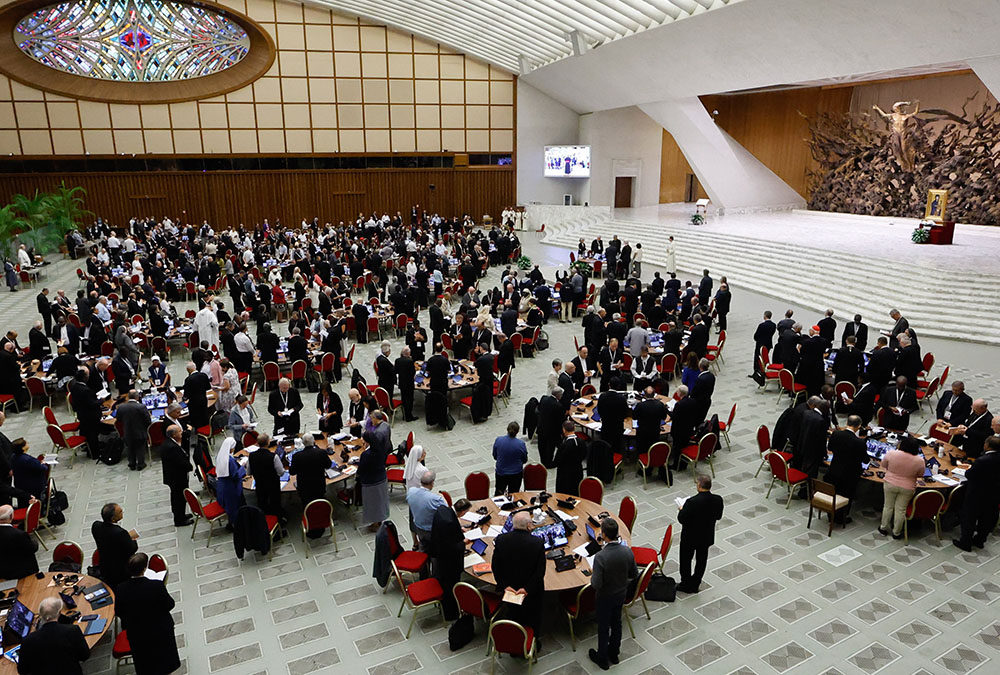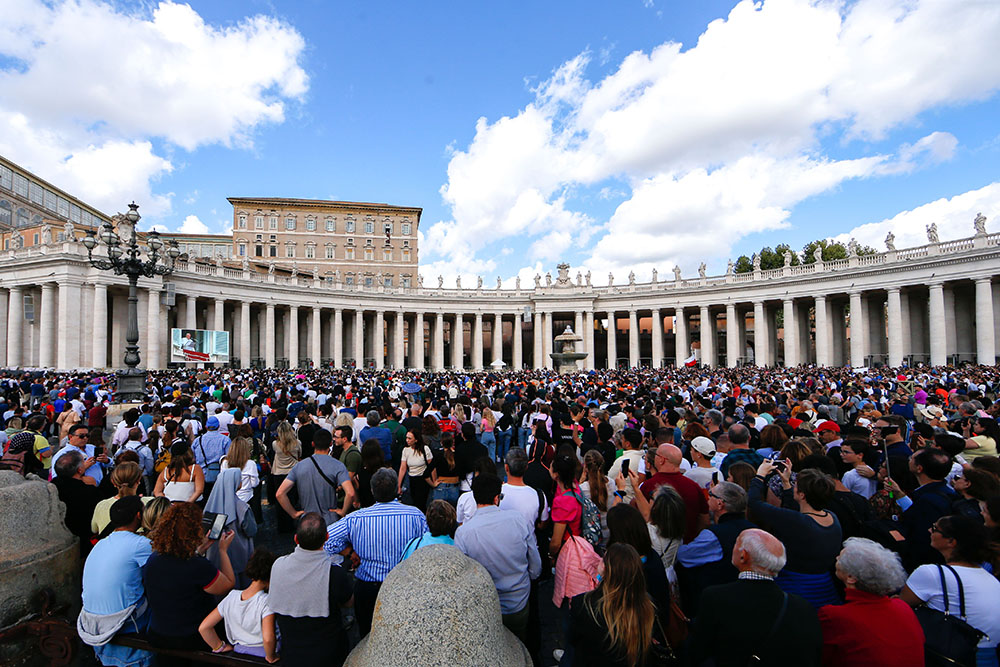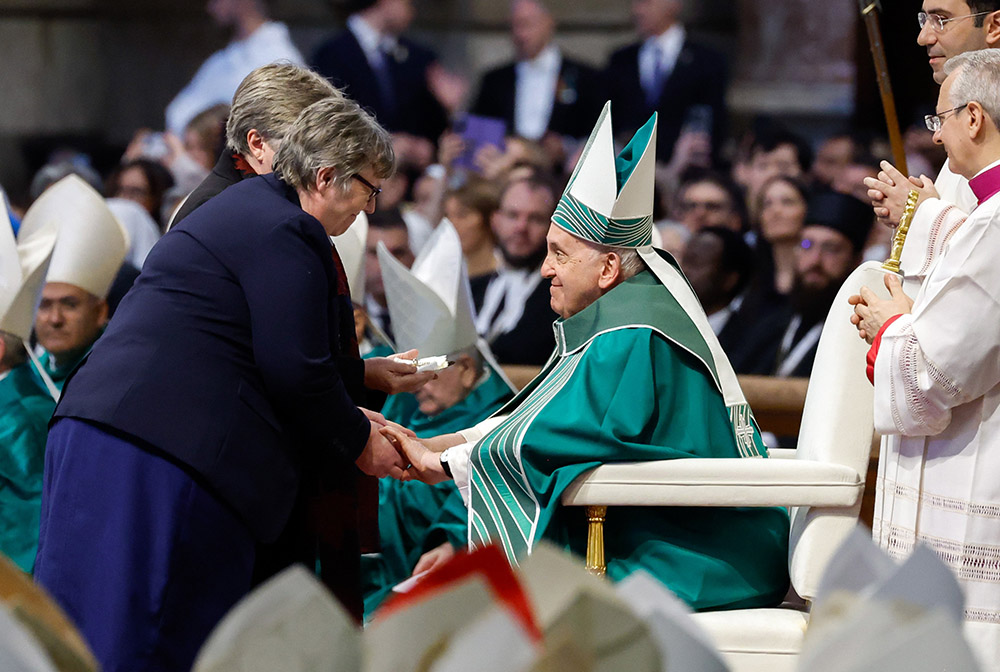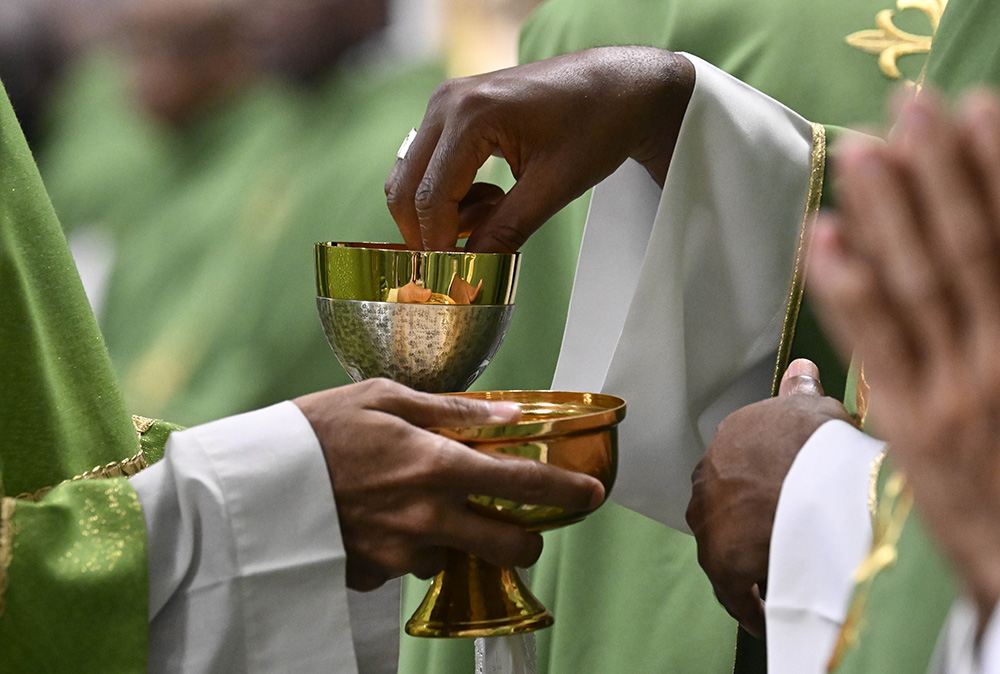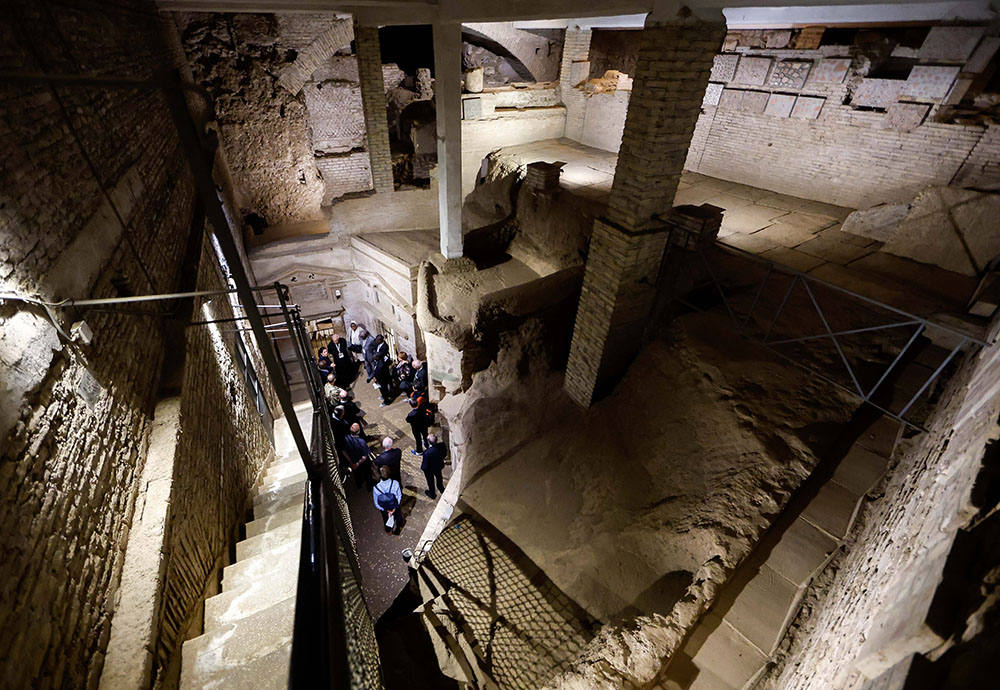The document marks the latest gesture of outreach from a pope who has made welcoming LGBTQ+ Catholics a hallmark of his papacy. From his 2013 quip, “Who am I to judge?” about a purportedly gay priest, to his 2023 comment to The Associated Press that “Being homosexual is not a crime,” Francis has distinguished himself from all his predecessors with his message of welcome.
“The significance of this news cannot be overstated,” said Francis DeBernardo of New Ways Ministry, which supports LGBTQ+ Catholics. “It is one thing to formally approve same-gender blessings, which he had already pastorally permitted, but to say that people should not be subjected to ‘an exhaustive moral analysis’ to receive God’s love and mercy is an even more significant step.”
The Vatican holds that marriage is an indissoluble union between man and woman. As a result, it has long opposed same-sex marriage and considers homosexual acts to be “intrinsically disordered.” Nothing in the new document changes that teaching.
And in 2021, the Vatican’s Congregation for the Doctrine of the Faith said flat-out that the church couldn’t bless the unions of two men or two women because “God cannot bless sin.”
That 2021 pronouncement created an outcry and appeared to have blindsided Francis, even though he had technically approved its publication. Soon after it was published, he removed the official responsible for it and set about laying the groundwork for a reversal.
In the new document, the Vatican said the church must avoid “doctrinal or disciplinary schemes especially when they lead to a narcissistic and authoritarian elitism whereby instead of evangelizing, one analyzes and classifies others.”
It said ultimately, a blessing is about helping people increase their trust in God. “It is a seed of the Holy Spirit that must be nurtured, not hindered,” it said.
It stressed that people in “irregular” unions of extramarital sex — gay or straight — are in a state of sin. But it said that shouldn’t deprive them of God’s love or mercy. “Even when a person’s relationship with God is clouded by sin, he can always ask for a blessing, stretching out his hand to God,” the document said.
“Thus, when people ask for a blessing, an exhaustive moral analysis should not be placed as a precondition for conferring it,” the document said.
The Rev. James Martin, who advocates for a greater welcome for LGBTQ+ Catholics, praised the new document as a “huge step forward” and a “dramatic shift” from the Vatican’s 2021 policy.
“Along with many Catholic priests, I will now be delighted to bless my friends in same-sex marriages,” he said in an email.
Traditionalists, however, were outraged. The traditionalist blogger Luigi Casalini of Messa in Latino (Latin Mass) blog wrote that the document appeared to be a form of heresy.
“The church is crumbling,” he wrote.
University of Notre Dame theologian Ulrich Lehner was also concerned, saying it would merely sow confusion and could lead to division in the church.
“The Vatican’s statement is, in my view, the most unfortunate public announcement in decades,” he said in a statement. “Moreover, some bishops will use it as a pretext to do what the document explicitly forbids, especially since the Vatican has not stopped them before. It is — and I hate to say it — an invitation to schism.”
Ramón Gómez, in charge of human rights for the Movement for Homosexual Integration and Liberation group in Chile, said the statement was a step toward breaking down discrimination in the church and could help LGBTQ+ people in countries where even civil unions aren’t legal.
But he said the document was “belated” and “contradictory” in specifying a non-ritualized blessing that cannot be confused with marriage. Such a mixed message, he said, “thus once again gives the signal that same-sex couples are inferior to heterosexual couples.”
The Vatican admonition to refrain from codifying any blessing or prayer appeared to be a response to Flemish-speaking bishops in Belgium, who last year proposed the text for a prayer for same-sex couples that included prayers, Scriptural readings and expressions of commitment.
In Germany, individual priests have been blessing same-sex couples for years, as part of a progressive trend in the German church. In September, several Catholic priests held a ceremony blessing same-sex couples outside Cologne Cathedral to protest the city’s conservative archbishop, Cardinal Rainer Maria Woelki.
The head of the German Bishops Conference welcomed the document.
“This means that a blessing can be given to couples who do not have the opportunity to marry in church, for example due to divorce, and to same-sex couples,” Bishop Georg Baetzing said in a statement. “The practice of the church knows a variety of forms of blessing. It is good that this treasure for the diversity of lifestyles is now being raised.”
In the United States, the Rev. John Oesterle, a Catholic priest and hospital chaplain in Pittsburgh, said many priests would probably not be open to offering such a blessing, but he welcomed Francis’ action.
“I think the pope has learned to accept people as God made them,” he said on Monday. “When I was growing up, the assumption was that God made everyone straight. What we have learned is that is not true. In accepting people as God made them, and if Jesus’ primary teaching is we should love and serve one another in the community, I think that’s what gives Pope Francis the openness to God’s presence in those relationships.”
The Church of England on Sunday announced a similar move allowing clergy to bless the unions of same-sex couples who have had civil weddings or partnerships, but it still bans church weddings for same-sex couples.


